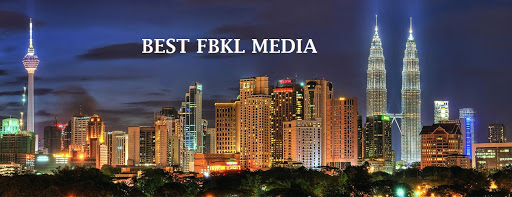Workers separating materials that can be reused at Jalan SL7, Bandar Sungai Long in Kajang. Photos: SAMUEL ONG/The Star
Single-stream separation means residents can simply place all recyclables in one bag
EXCLUSIVE: SELANGOR will run a pilot programme on separating recyclable wastes for eight weeks beginning next Monday at selected neighbourhoods.
But unlike the waste segregation programme in the Federal Territory, households in Selangor need only to put paper (newspaper and cardboard) and containers (plastic and aluminium) into one durable large clear plastic bag.
One bag a week will be given for free to households and business proprietors in the selected areas.
“They can mix paper, plastic, aluminium cans, tins, glass and cardboards in the durable clear bag as there is no sorting needed at source, as opposed to earlier efforts by councils to have separate bins to sort paper, plastic and aluminium cans.
Four local councils involved in the waste separation are Petaling Jaya City Council (MBPJ), Kajang Municipal Council (MPKj), Ampang Jaya Municipal Council (MPAJ) and Hulu Selangor Distict Council (MDHS).
Affected areas under MBPJ are Kampung Sungai Kayu Ara (50 households), Boulevard Residence Condominium in Kayu Ara (100 units), Jalan 16/3 in Section 16 (40 bungalows), Flats Block C, Petaling Utama in PJ South 1 (325 units), Jalan 11/6 in Section 11 (40 bungalows) and 70 units in Block D in 10 Boulevard, a commercial area in Kayu Ara.
MPKj covers Bandar Sungai Long Section 7 (250 terrace houses) and Jalan SL 1/4 (50 commercial units) while MPAJ involves Flat Merpati B (207 units) and Pandan Puteri Condominium (144 units).
Areas under MDHS are Bandar Utama Batang Kali Section 3 (196 low-cost houses) and 80 units in Jalan Meranti 1, a commercial area.
Local Government, New Village Development and Legalising of Factories Committee chairman Ean Yong Hian Wah said the state government had allocated about RM300,000 for the pilot project.
“The councils will top up with their own funds for the pilot programme if necessary,” he added.
“Single-stream waste separation in residential and commercial areas is the simplified approach to environmental conservation and a crucial step forward to reduce waste generation and prolong landfills’ expected lifespan.
“Using one bag to throw in recyclables makes it easier and now there is no excuse not to follow the pilot project.
“Sorting out will be done at designated areas decided at council level,” he said, adding that kitchen waste which was put in a separate bin or plastic bags would be the only waste ending up in landfills.
Ean Yong, however, said cans and bottles should be given a rinse before being discarded, to prevent bad odour.
“Food contamination in recyclables must be minimised to avoid the receptacles from getting mouldy,” he said.
The exco said there were six million people living in Selangor and on average, each resident produced about 0.8kg of rubbish in a day.
“In 2013, the state generated 1.7 million tonnes of solid waste and in 2014, the figure went up to two million tonnes, making Selangor one of the highest domestic waste producers in the country,” he said.
Petaling Jaya City councillor Peter Chong said about 80% of the domestic waste in Selangor ended up in landfills meant to be used for another eight years, thus putting pressure on the management of solid waste.
Currently there are three sanitary landfills – in Jeram, Tanjung Dua Belas and in Bukit Tagar.
Chong said the pilot project was in line with MBPJ’s aim to reduce the amount of trash that went into landfills, cut expenditure and reduce carbon footprint.
“All residents involved in the pilot programme must be committed to volunteer a little time to separate their trash for eight weeks, to ensure the approach to create an efficient collection of recyclables is a success.
“We must not see it just as a social experiment but as a step towards establishing a complete programme for all 12 local councils,” he said.
He added that Petaling Jaya had chosen a cross section of participants from different economic backgrounds to understand the attitude, behaviour, and to note the composition of recyclables.
Earlier, Chong had briefed Kampung Sungai Kayu Ara village chief Ramli Daud and fellow residents on the waste separation and was elated that villagers were raring to start the programme.
Chong said it would be good to achieve an inclusive approach rather than a regulatory approach.
“Our aim is to get people to see the benefits to volunteer a little time to sort out their garbage.
“Apart from protecting the environment, expenditure on waste management can be curbed and the savings can be used for the people,” he said.
State Tourism, Consumer Affairs and Environment Committee chairman Elizabeth Wong said diverting recyclables from the landfills conserved natural resources, saved valuable land and reduced greenhouse gases.
She said recycling could reduce emissions of pollutants that could contaminate water bodies.
Single-stream collection made it more convenient for households to separate their trash, she added.







